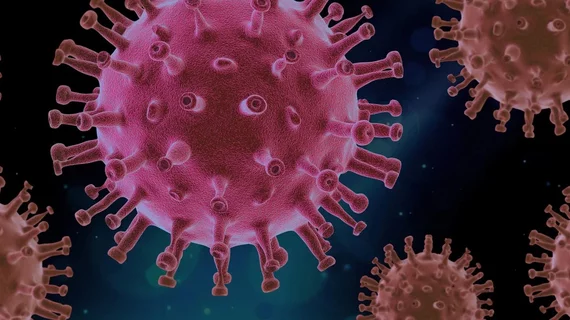Scientists developing ‘quasi-tomographic’ new radiology system geared toward cheaper, easier COVID-19 assessment
A team of researchers in Spain is working to develop a brand new imaging system aimed at simplifying radiologists’ workflows and assessing COVID-19 symptoms more easily.
Their goal is to create a low-cost alternative to CT scanners, which the team said are useful for evaluating the disease’s progression, but pricey and less prevalent. The team from several institutions hopes to develop this new imaging tool in the next six months, with the capability of completing “quasi-tomographic” x-ray studies.
They’re also planning to integrate artificial intelligence to further aid busy radiologists during the pandemic, according to a Tuesday, April 14, announcement.
"The incorporation of AI algorithms can contribute to facilitating diagnosis, accelerating image analysis and reducing the dose of radiation the patient receives", principal investigator, Manuel Desco, a bioengineering researcher with the Universidad Carlos III de Madrid, said in a statement.
Desco and colleagues hope their “high-precision” new imaging tool will provide a much clearer picture of coronavirus pulmonary involvement. The Spanish team of researchers said such imaging has proven crucial in helping to facilitate hospital admissions, courses of treatment and intensive care unit transfers.
With challenges administering CT scans, some have turned to chest x-rays as an alternative. However, the team noted that such scans are “not very sensitive” and often underestimate pulmonary damage when compared to computed tomography.
Beyond increased accuracy, Desco and colleagues believe their new system would bolster access to imaging, help to facilitate the epidemiological characterization of the outbreak, and optimize the radiation dose delivered to each COVID patient.
Others participating in the project include the Hospital General Universitario Gregorio Marañón, the Instituto de Investigación Sanitaria San Carlos and the company Sedecal Molecular Imaging.

